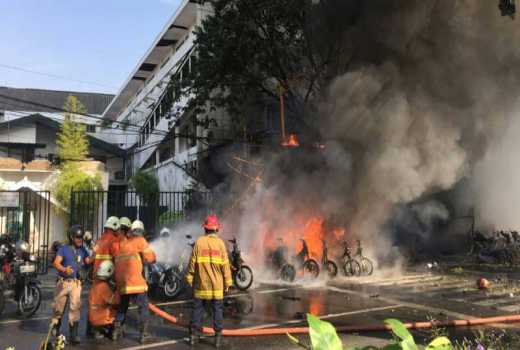×
The Standard e-Paper
Fearless, Trusted News

A family of five, including a child, carried out the suicide bombing of a police headquarters in Indonesia's second city Surabaya on Monday, police said, a day after a deadly wave of attacks on churches staged by another family.
The spate of bombings has rocked Indonesia, with the Islamic State group claiming the church attacks and raising fears about its influence in Southeast Asia as its dreams of a Middle Eastern caliphate fizzle.